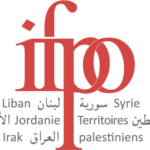Non-Muslim Contributions to Islamic Civilisation Heritage | Wednesday, February 14
Royal Institute for Inter-Faith Studies, Amman
The Royal Institute for Inter-Faith Studies (RIIFS) and the Institut français du Proche-Orient (IFPO) with the support of the French Embassy in Amman are organizing an international conference “Non-Muslim contributions to Islamic Civilisation Heritage”, which will be held at the RIIFS in Amman, Jordan on 14th February 2024.
Islamic history is not limited to Muslims alone (Humphreys, 1991, p. 255). Islamic civilization and culture are the result of a long process of exchange in which non-Muslim communities played a significant role in various fields, thus contributing to what is known as Islamic civilization. Several prominent non-Muslim scholars, such as the famous Hunayn ibn Ishaq (d. 260/873) among others, made important contributions by translating many Greek, Syriac, Persian and Sanskrit classical works into Arabic.
If translation is in itself a contribution to the Islamic civilisational heritage (Dimitri Gutas, 1-10), it had a second contribution at the theological level. Indeed, the translation of numerous Greek philosophical texts into Arabic influenced certain rationalist currents such as Mutazilism (Hourani, 1976).
The field of medicine is not left out with the Christian figure of Ibn al-Quff al-Karkī (d. 685/1286) who was the pupil of the famous Ibn al-Nafīs (d. 687/1288). As Efraim Lev highlighted in his recent book, the Jewish community contributed greatly to the development of medicine in the medieval Muslim world (Lev, 2022).
Certain disciplines, such as philosophy, originally exogenous to the Islamic civilization, were received and rethought by the scholars of this civilization, who gave them new life and made them their own.
In addition to sciences and arts, non-Muslims played an important role in the development of Islamic governance under Umayyads, Abbassids and Fatimids, as vizirs, administrators, advisors, secretaries and diplomats to Muslim rulers. “Despite certain legal restrictions outlined by Muslim jurists, dhimmi employment in the government had long been an established policy” (Sirry, 2011, p. 187-204.)
Islamic warfare art, like art, is also the fruit of different cultures, especially non-Islamic ones. Quite quickly, the Muslim armies of the early days of Islam integrated the weaponry, tactics and combat techniques of the non-Muslim armies they faced during the 7th and 8th centuries. The art of furūsiyya is probably one of the best examples of the non-Muslim contribution to this multicultural Islamic martial art (Zouache, 2013, p. 65-72; Berriah, 2020, p. 232-233)
Bibliography
Berriah, Mehdi, “Représentations, sunnanisation et sacralisation de la furūsiyya à l’époque mamelouke (XIIIe-XVIe siècle)”, Bulletin d’études orientales 67 (2020): 229-246.
Berriah, Mehdi & Petitjean Maxime, “La théorie militaire sassanide : regards croisés”, Antiquité Tardive. Revue internationale d’Histoire et d’Archéologie (IVe-VIIIe siècle) 30 (2022):181-199.
Gutas, Dimitri, Greek Thought, Arabic Culture. The Graeco-Arabic Translation Movement in Baghdad and Early ‘Abbasid Society (2nd-4th/8th-10th centuries), Routledge, New-York, 1998.
Hourani, George F., “Islamic and Non-Islamic Origins of Mu’tazilite Ethical Rationalism”, IJMES, 7/1 (1976): 59-87.
Humphreys, Stephen, Islamic History: A Framework for Inquiry, Princeton University Press, New Jersey, 1991.
Lev, Efraim, Jewish Medical Practitioners in the Medieval Muslim World. A Collective Biography, Edinburgh University Press, 2022.
Sirry, Mun’im, “The public role of Dhimmīs during ʿAbbāsid times”, BSOAS, 74/2 (2011): 187-204.
Zouache, Abbès, “Une culture en partage : la furūsiyya à l’épreuve du temps”, Médiévales, 64 (2013) : 57-75.
Organisation
The conference will bring together historians, philosophers and specialists of Islamic studies to shed light on and/or to bring new elements to any new or little-studied aspect of the phenomenon of the non-Muslims contribution to Islamic civilisation.
Among the main topics (but not limited to):
1- contributions of non-Muslims in any field (intellectual, cultural, scientific, technological, medical, theological, philosophical, political, legal, economic, architectural, artistic).
2- Non-Muslim contribution: Arab, Persian, Turkish, Kurdish, Greek, …and others, of different religions and backgrounds.
3- exogenous disciplines/ideas/thought that had an impact, were received and are an inherent part of Islamic civilisation.
4- influence of religions on Islamic civilisation and vice versa.
5- non-Muslims’ awareness (or not) of their contribution to and belonging to the Islamic civilisation.
English and Arabic will be the languages of communication, and the duration of each paper submission will be 20 minutes. Each session will be followed by 30 minutes Q&A’s session.
Renee Hattar, Royal Institute for Inter-Faith Studies (RIIFS/Amman)
 |
 |
 |
